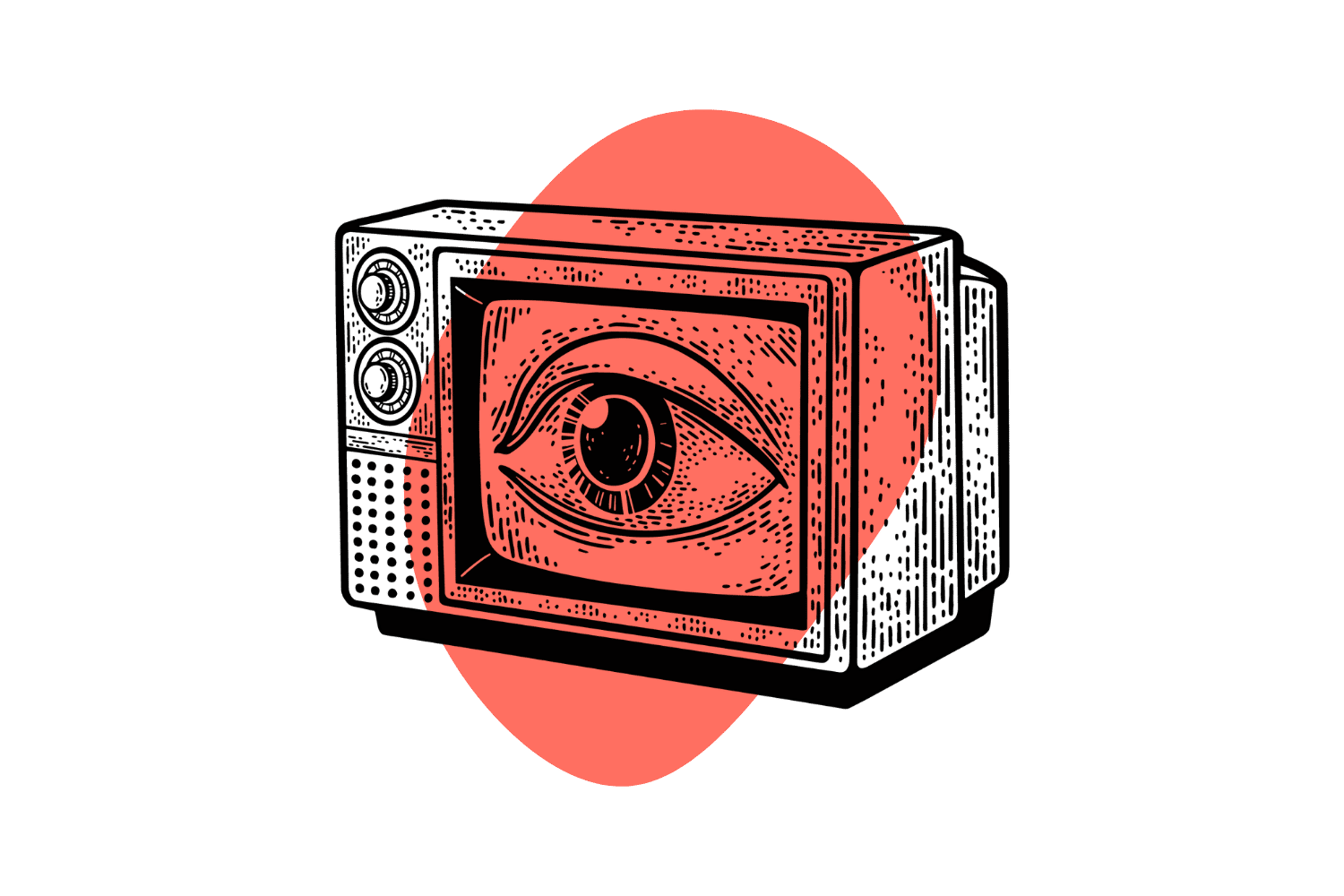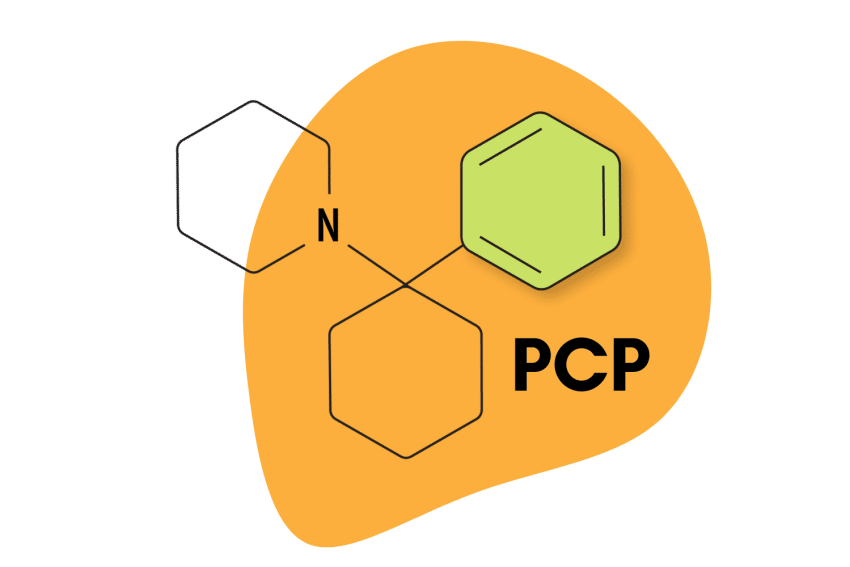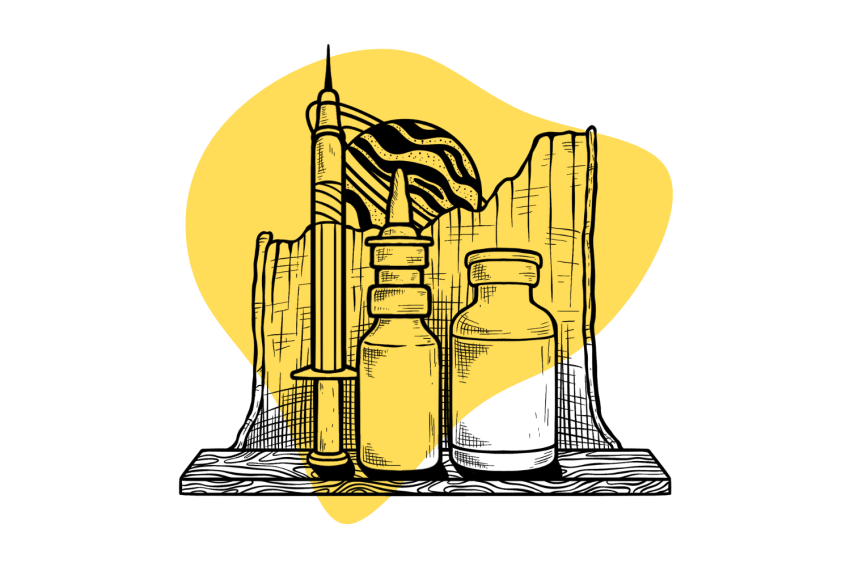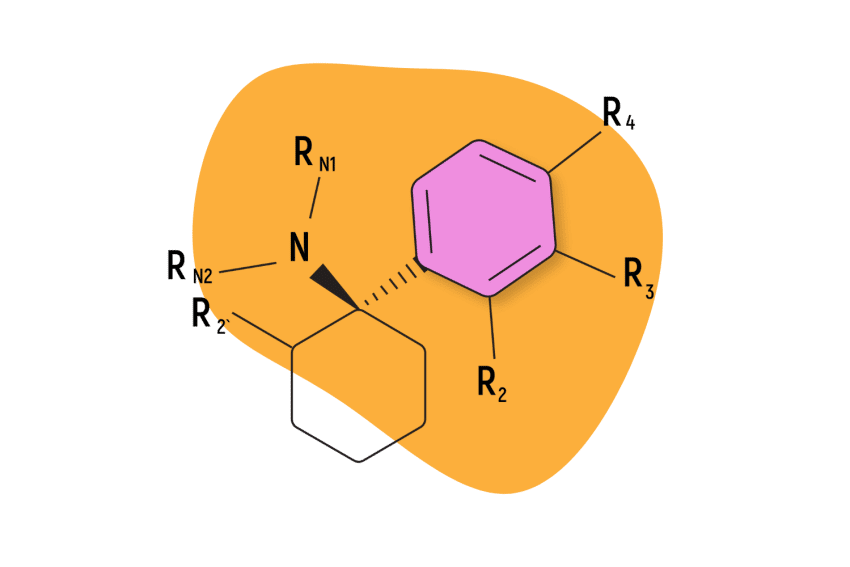N2O: Nitrous Oxide
They don’t call it “laughing gas” for nothing.
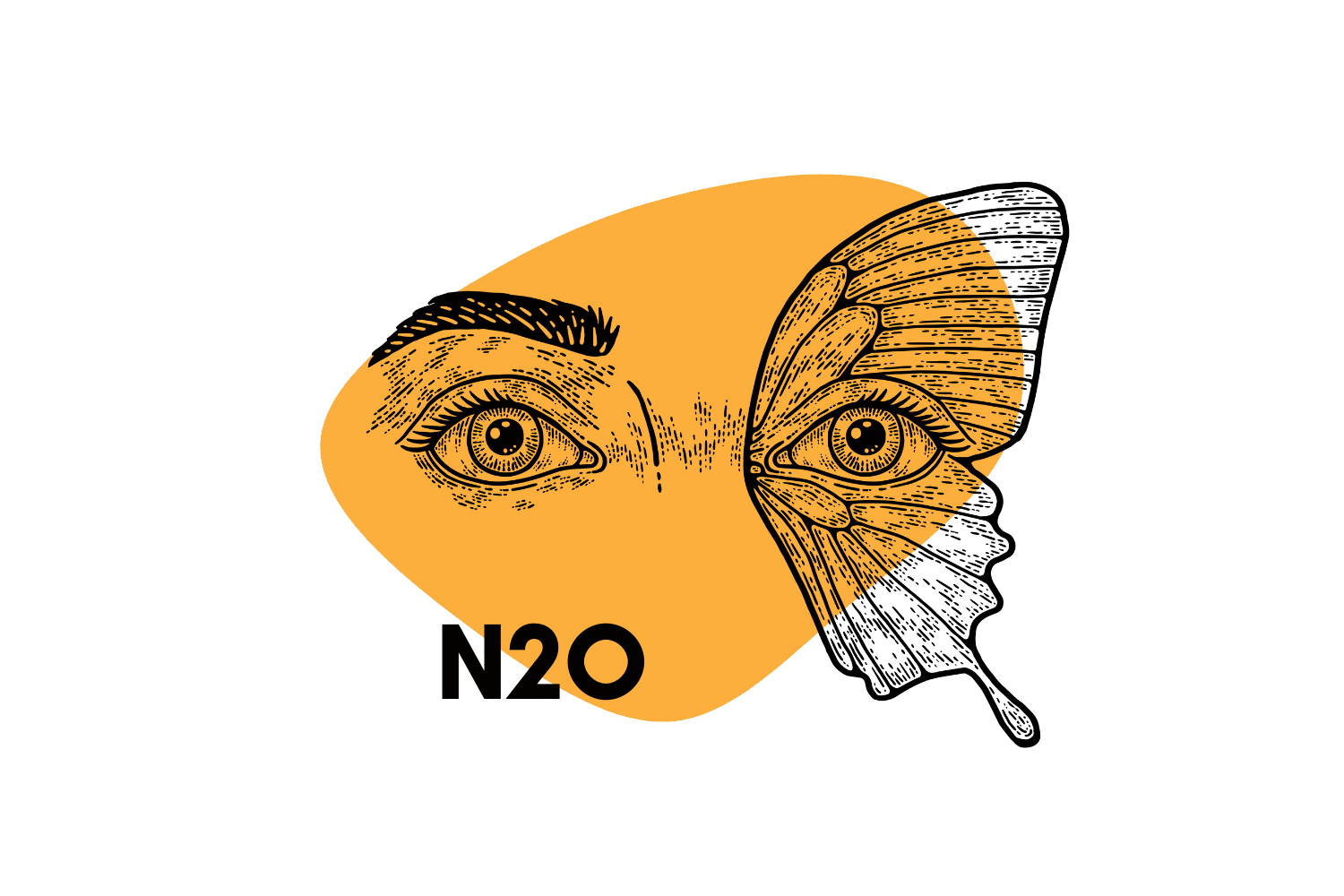
If you’ve had your wisdom teeth removed, you’ve probably experienced the effects of nitrous oxide (N2O).
This incredibly potent yet short-lived psychoactive gas is most often used to make whipped cream and as anesthesia for dental procedures.
Just one breath of nitrous oxide is strong enough to launch you into what feels like another dimension entirely — for a few minutes, at least. Within about 2 minutes, you’re completely back to normal.
While N2O itself is non-toxic, abuse of this substance is linked to a wide range of side effects.
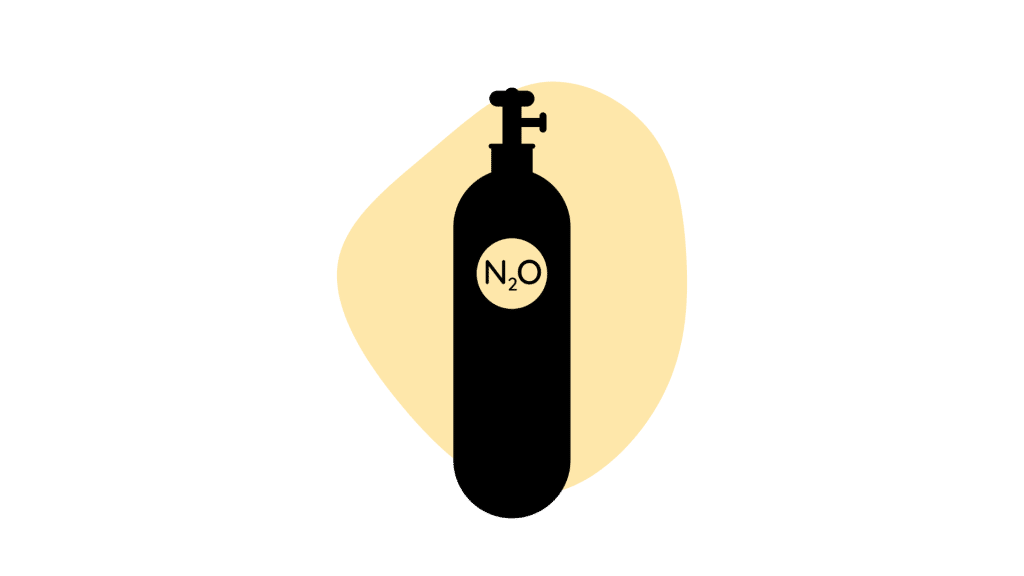
What is Nitrous Oxide?
Nitrous oxide — commonly known as ‘laughing gas,’ ‘whippits,’ or ‘NOS’ — is a powerful but short-lived dissociative and euphoric drug. It’s also used as an oxidizer for combustion engines and as an anesthetic and painkiller in dentistry, surgery, and emergency medicine.
As a dissociative drug, nitrous oxide blocks the NMDA receptors in the brain in a similar way to ketamine, PCP (phencyclidine), DXM (dextromethorphan), xenon gas, and others. Blocking NMDA receptors leads to feelings of disconnection from one’s surroundings and, in higher doses, from the ‘self.’
Very high doses of N2O are undeniably psychedelic and euphoric — users feel as though they’ve been blasted off into space or are falling endlessly into blackness. Despite the trippy and sometimes disturbing experience this compound induces, the user remains in a state of total euphoria and bliss. There is no fear, no grief, and no discomfort during the experience.
These psychoactive effects have led to widespread recreational use — especially within the last 20 years. Although, this trend isn’t new. So-called “laughing gas parties” were reported in Great Britain all the way back in the early 1800s among the upper-class [1].
Nitrous Oxide Specs:
| Active Ingredient | Nitrous Oxide (N2O) |
| Level of Risk | Low–moderate |
| Other Names | NOS, Whippits, Hippie Crack, Laughing Gas |
| Most Common Side Effects | Dizziness, loss of consciousness, laughter |
| Duration of Effects | 1–3 minutes |
| Legality | Legal in most places, illegal in the UK |
Nitrous Oxide Effects Matrix
What Does Nitrous Oxide Feel Like?
Nitrous oxide is a prototypical dissociative and euphoric. Dissociatives cause a sense of disconnection with the mind, body, and/or environment. This makes nitrous an excellent anesthetic and analgesic — disconnecting the patient from the body to escape physical pain during surgery or following severe traumatic injuries.
The first effect people feel when huffing nitrous is lightheadedness. This is often accompanied by laughter, swooshing sounds in the ears, and difficulty communicating with others. The effects are confusing and bizarre, but the dissociation and euphoria eliminate feelings of fear or paranoia during the experience. People will often mumble, laugh hysterically, or roll on the floor for a few moments until the effects wear off.
In high doses, nitrous oxide is a powerful psychedelic — often taking people out of the body entirely. Users feel the world imploding around them, their vision becomes dark or blurry, and they feel uncontrollable laughter, giddiness, and euphoria. It’s common for people to lose touch with their sense of self entirely. The ego is dissolved temporarily, and the user can take an unbiased look at themselves.
Unfortunately, nitrous oxide has a tendency of erasing memories of the experience, so ego death from N2O is considered less valuable than ego death associated with other psychedelics, such as DMT, magic mushrooms, or LSD.
With classical psychedelics, the ego-death experience is one of the most powerful life-changing elements about them. But with whippits, the ego death is just a trippy experience. Once it’s over, the only way to get the feeling back again is to take more whippets.

What’s The Dose of Nitrous Oxide?
In medical practice, nitrous oxide is administered through a respirator for as long as is needed. During an operation or while riding in the back of an ambulance, N2O is administered until other painkillers have time to kick in or the operation is over. Once the nitrous is turned off, the user quickly returns to normal and is consciousness again within minutes.
Recreationally, a whippit canister or NOS tank is used to fill a balloon with N2O, enabling the gas to expand (to prevent lung damage). Then the user inhales the gas directly from the balloon.
The dose depends on the number of huffs someone takes from the balloon, how long they hold it, and the amount of air that’s allowed to mix with the gas:
- Low dose — half-inhale from the balloon and half inhale from ambient air
- Medium dose — full inhale from the balloon, with a quick gulp of ambient air at the end
- High dose — deep exhalation of air, full inhalation of air from the balloon, holding the breath
Note: N2O displaces oxygen. Filling the lungs with pure N2O can cause users to pass out and vomit.

How Long Do The Effects of Nitrous Oxide Last?
The high from nitrous oxide is extremely short-lived. The effects kick in within about 10 seconds, peak around 30 seconds later, and then fade out within a minute of exhaling the breath.
Is Nitrous Oxide Legal?
Nitrous oxide is legal in most parts of the world, including Canada, the United States, and most European countries.
The only exception within the US is the state of California, which recently made the sale of N2O for recreational use a criminal offense (California Penal Code 381b).
N2O abuse is prevalent in the UK. In 2016, the UK government made the sale of N2O for recreational purposes illegal, with a maximum penalty of 7 years imprisonment — as per the Psychoactive Substances Act 2016. Nitrous oxide remains legal for culinary and medical use in the UK.
The Dangers of Nitrous Oxide Gas
Nitrous oxide is generally considered safe, and the gas itself is non-toxic.
With that said, there are some risks with using this substance — some of which can lead to death or serious injury.
Asphyxiation
The most concerning risk of N2O is asphyxiation. The gas displaces oxygen and can cause users to suffocate if they inhale too much for too long. This is a major risk if using N2O from a respirator that doesn’t administer supplemental oxygen. In a hospital, N2O is diluted with pure oxygen to prevent this, and the vital signs of the patient are monitored constantly. This is rarely the case with recreational users.
While deaths are uncommon from using N2O, there have been accounts of people dying from asphyxiation after taking very high doses. The risk of death increases substantially when using this substance alone.
Impurities & Toxic Ingredients
Industrial and culinary N2O tanks are not meant for human consumption — as such, they often contain impurities, such as manufacturing lubricants, noxious gases or solvents, and metal particulate. These can all enter the lungs while inhaling whippits, leading to lung damage — especially with repetitive use.
Lung Injury
Nitrous oxide usually comes in liquid form inside a pressurized canister. Once the gas is released, it quickly expands into a gas. Huffing N2O directly from the canister can cause serious lung damage.
Additionally, the gas is very cold when it first leaves the canister and can damage the throat and lungs.
The best way to prevent both of these issues is to first fill the nitrous oxide into a balloon, allowing it to heat up and expand, and then huff the gas. Never huff nitrous oxide directly from the canister.
Nitrous Oxide Addiction
Nitrous oxide isn’t inherently addictive the way other drugs, like heroin or cocaine, are — but it can be habit-forming. N2O consumption is most prevalent in the UK (38.6%) and the US (29.4%) [2]. The vast majority of users don’t become addicted.
All dissociatives carry some risk of addiction. Some people crave the feelings of separation from the body — even if the experience is otherwise negative (as is the case with other dissos like PCP or DXM).

N2O can easily become habit-forming because of how short-lived the effects are. Each trip lasts an average of 1–3 minutes, so users can easily go through several cylinders in a single sitting. The threshold for use is also much lower. Users can inhale N2O at any point in the day because they know they’ll be back to normal in just a few minutes — such as on a break from work or in between classes.
The more often you use N2O, the more likely you are to crave it or even become physically dependent on it. While N2O addiction isn’t common, people that are hooked on it have just as hard of a time going without it as any other addictive substance.
As with just about any drug, excessive use of nitrous oxide can lead to a long list of negative side effects — despite the gas itself being relatively non-toxic.
Long-term use of N2O has been associated with the following side effects:
- Vitamin B12 deficiency
- Anemia & hemopoiesis (poor blood production)
- Tinnitus (constant ringing in the ears)
- Neuropathy (nerve damage)
- Tingling or numbness in the extremities
- Reduced lung capacity
- Dizziness & lightheadedness
- Chronic cough
- Spinal cord degeneration

How Strong is Nitrous Oxide Compared to Other Dissociative Drugs?
Nitrous oxide has very strong dissociative and euphoric effects. In higher doses, N2O can cause depersonalization, derealization, hallucinations, and even temporary delirium.
Few other dissociatives offer the potency or celerity of nitrous oxide. Intravenous ketamine comes close, and PCP, DXM, and MXE are all comparable to low-dose N2O.
The only drug more powerful than N2O is xenon gas — but this substance is significantly harder to find and way more expensive.
Nitrous Oxide vs. Xenon
Xenon is an element created by merging neutron stars. It makes up a small percentage of the atmosphere, from which it can be condensed and distilled. Xenon is considered the perfect anesthetic because it’s non-reactive, doesn’t cause toxic effects in humans, won’t react with other drugs, and provides powerful anesthesia, dissociation, and euphoria.
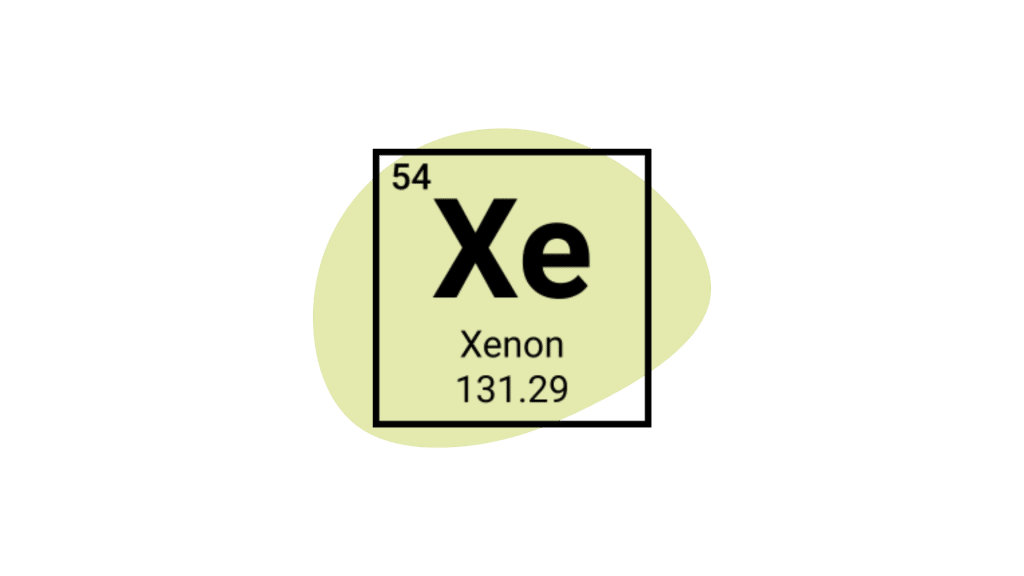
Compared to nitrous, xenon gas is at least twice as strong, and the high feels qualitatively “cleaner.” It kicks in instantly to produce an overwhelming sense of euphoria and depersonalization. Xenon can be used alone for anesthesia, while N2O needs to be combined with other substances (such as Midazolam) to achieve complete anesthesia.
Nitrous Oxide vs. DXM
DXM (dextromethorphan) shares similar qualities to nitrous oxide but is much longer-lasting.
It’s hard to compare these two drugs because of how different they act on the body, but the overarching experience has a similar flavor.
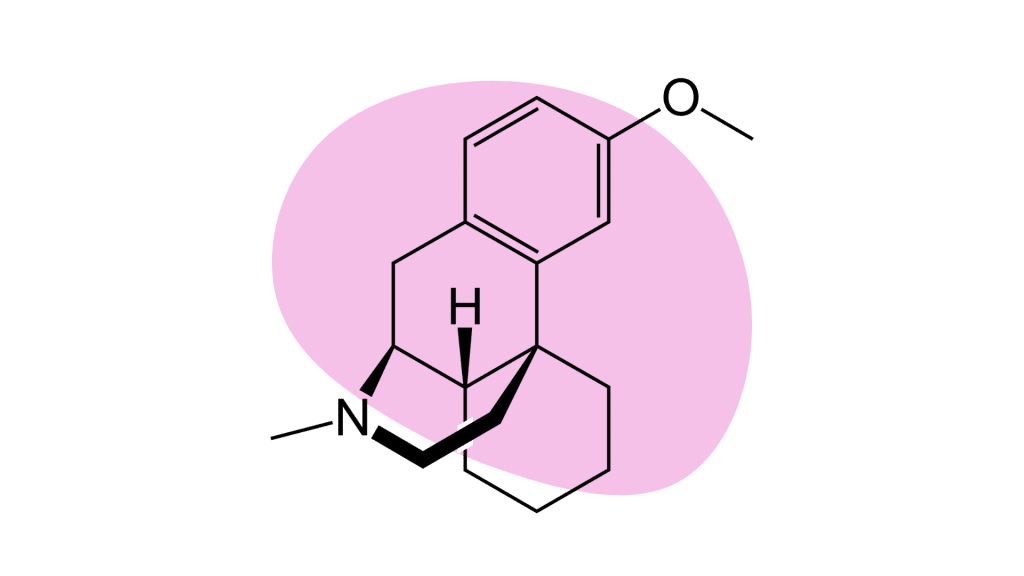
DXM makes users feel tipsy at low doses, euphoric and drunk in larger doses, and fully dissociative in higher doses. High-dose DXM is very comparable to the effects of N2O.
For some people, DXM brings uncomfortable side effects that aren’t present with N2O, including nausea, paranoia, and delirium. The depersonalization impact is similar to N2O.
DXM carries a higher risk for side effects than N2O because of the higher dose, longer-lasting effects, and metabolic stress it imposes on the liver. There’s also a risk of liver damage or other side effects from over-the-counter DXM products that contain other compounds, such as acetaminophen.
Nitrous Oxide vs. Ketamine
Ketamine has differing effects depending on the dose. In lower doses, it’s more akin to MDMA or stimulant drugs. In higher doses, it’s closer to the effects of nitrous oxide (but still entirely distinct).
Complete ketamine-induced depersonalization and derealization is referred to as a K-hole. This experience shares similarities with the effects of high-dose nitrous oxide. The user often feels as though they’re falling endlessly into blackness or flying through space.
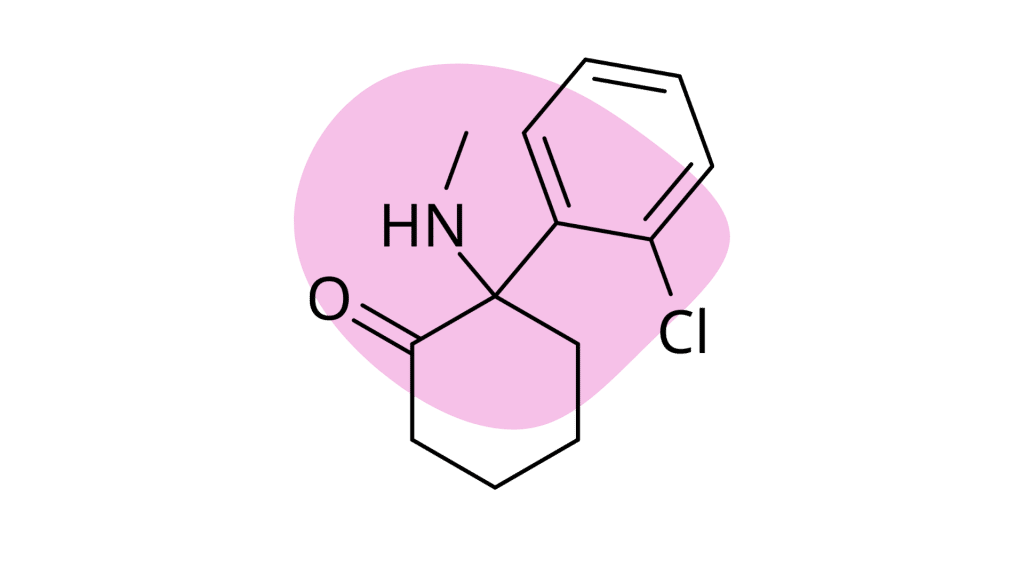
Ketamine is extremely introspective, which is something N2O lacks. While under the effects of nitrous, it’s nearly impossible to follow any single train of thought for any amount of time.
Nitrous Oxide vs. PCP
PCP (phencyclidine) has powerful dissociative, euphoric, stimulant, and deliriant effects. The effects of this drug overlap with nitrous oxide, but it’s entirely distinct in how the experience feels.
Low-dose PCP is more similar to ketamine or DXM. Users often feel a sense of mental clarity and increased confidence — they feel like they could do anything.
Higher doses become much more psychedelic and cause users to feel disconnected from the body. It’s common for people to feel like they’re on autopilot. They decide to do something, and their body just does it without consciously acting on it. They may also see, hear, or experience events that didn’t actually happen.
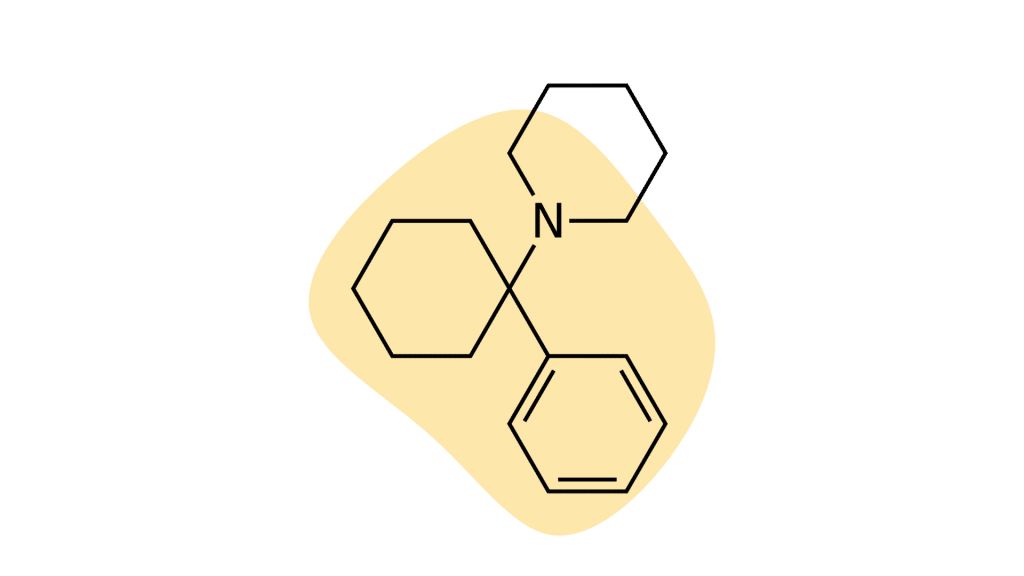
Even very high doses of PCP are distinctly different from nitrous oxide. People often experience similar depersonalization and derealization, but the euphoric effects aren’t as strong. High doses of PCP often lead to long-lasting bouts of paranoid delirium, increased aggression, and lapses in both memory and judgment.
Perhaps the biggest difference between PCP and N2O is the duration of effects. PCP can last 12 hours or more, while N2O rarely exceeds 3 minutes.
How Does Nitrous Oxide Work?
Nitrous oxide’s effects come from its ability to block the NMDA receptors in the brain. Specifically, N2O binds to the glycine receptor sites on the NMDA receptor, preventing the ion channel from opening. This stops chemical messages from traveling through the neuron and cascading to other areas of the brain.
N2O also increases dopaminergic activity in the nucleus accumbens. This is an effect absent from xenon and one of the reasons some researchers believe xenon is less addictive than nitrous oxide.
The pharmacological effects of nitrous oxide include:
- NMDA receptor antagonist (strong) [3]
- Dopaminergic (moderate) [7]
- AMPA antagonist (weak) [4]
- Kainate antagonist (weak) [8]
- 5-HT3 (serotonin) receptor antagonist (weak) [8]
- GABA C antagonist (weak) [8]
- GABA A agonist (weak) [8]

Nitrous Oxide FAQs
If you have any questions about N2O or want to provide some feedback, send us a note to high@tripsitter.com.
Here are some of the most common questions we get asked about nitrous oxide and other dissociatives.
1. Does Nitrous Oxide Change the Voice?
Yes, nitrous oxide is about 50% denser than ambient air. This increased density slows movement through the vocal cords, which gives the sound a deeper pitch.
2. Is Nitrous Oxide a Greenhouse Gas?
Yes, nitrous oxide is a significant contributor to global warming and carries 265 times the atmospheric heat-trapping capacity of carbon dioxide. A study published in 2009 reported that nitrous oxide was the single biggest contributor to ozone depletion in the last 100 years [6].
Nitrogen-based fertilizers and byproducts of burning fossil fuels are the main contributors to nitrous oxide in the atmosphere.
References
- van Amsterdam, J., Nabben, T., & van den Brink, W. (2015). Recreational nitrous oxide use: prevalence and risks. Regulatory toxicology and pharmacology, 73(3), 790-796.
- Kaar, S. J., Ferris, J., Waldron, J., Devaney, M., Ramsey, J., & Winstock, A. R. (2016). Up: The rise of nitrous oxide abuse. An international survey of contemporary nitrous oxide use. Journal of psychopharmacology, 30(4), 395-401.
- Mennerick, S., Jevtovic-Todorovic, V., Todorovic, S. M., Shen, W., Olney, J. W., & Zorumski, C. F. (1998). Effect of nitrous oxide on excitatory and inhibitory synaptic transmission in hippocampal cultures. Journal of Neuroscience, 18(23), 9716-9726.
- Mennerick, S., Jevtovic-Todorovic, V., Todorovic, S. M., Shen, W., Olney, J. W., & Zorumski, C. F. (1998). Effect of nitrous oxide on excitatory and inhibitory synaptic transmission in hippocampal cultures. Journal of Neuroscience, 18(23), 9716-9726.
- Lan, S. Y., Kuo, C. Y., Chou, C. C., Kong, S. S., Hung, P. C., Tsai, H. Y., … & PCHAN Study Group. (2019). Recreational nitrous oxide abuse related subacute combined degeneration of the spinal cord in adolescents–a case series and literature review. Brain and Development, 41(5), 428-435.
- Ravishankara, A. R., Daniel, J. S., & Portmann, R. W. (2009). Nitrous oxide (N2O): the dominant ozone-depleting substance emitted in the 21st century. science, 326(5949), 123-125.
- Benturquia, N., Le Marec, T., Scherrmann, J. M., & Noble, F. (2008). Effects of nitrous oxide on dopamine release in the rat nucleus accumbens and expectation of reward. Neuroscience, 155(2), 341-344.
- Yamakura, T., & Harris, R. A. (2000). Effects of gaseous anesthetics nitrous oxide and xenon on ligand-gated ion channels: comparison with isoflurane and ethanol. The Journal of the American Society of Anesthesiologists, 93(4), 1095-1101.



